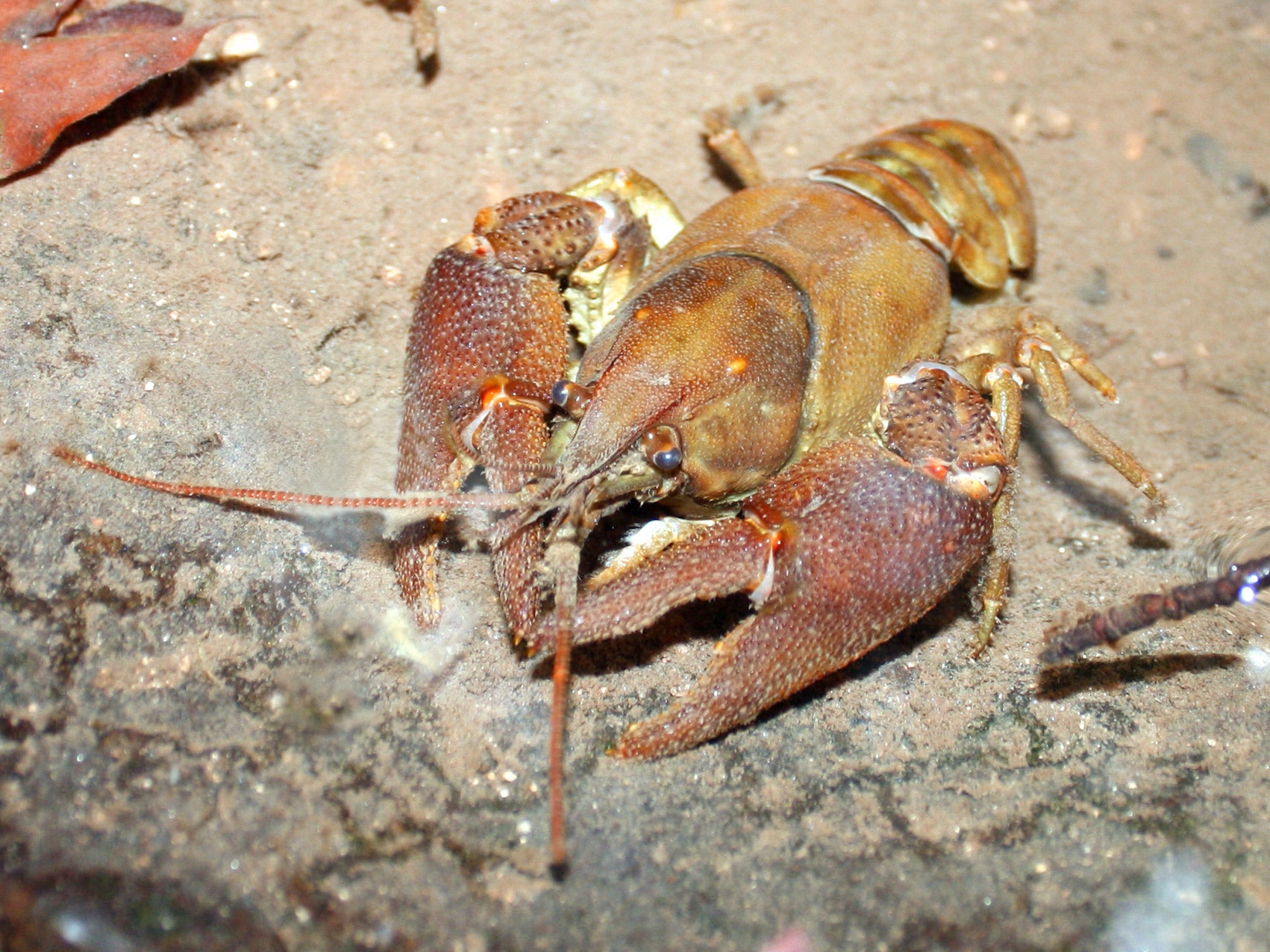Errors and Omissions: Plagued by an inappropriate use of a metaphor
Our Letters editor casts his eye over this week's Independent coverage

A news story on Wednesday reported the doom pronounced upon the native white-clawed crayfish of the river Allen in Dorset. A fungal disease, carried by invading American crayfish, will wipe them out.
“All 8,000 of the river’s white-clawed crayfish are forecast to perish at the hands of the plague.” (My thanks to Bernard Theobald for pointing that out.)
Can a plague be said to have hands? Well, it’s only a metaphor, but metaphors are supposed to paint a suitable picture in the reader’s mind. When you talk about perishing “at the hands” of somebody or something, the reader will picture some malicious person or powerful creature rending the victim limb from limb. Viruses are not like that at all.
-------------------
American crayfish may be a menace, but here is an American import all sensible people will welcome.
“Howls of outrage from the public would normally ensue, but the housebuilders have gotten away with it.” That was Russell Lynch writing in Wednesday’s business Outlook column.
This column has long tried to promote “gotten”, the robust, colourful American past participle of “get”, greatly preferable to the anaemic British “got”. Wonderful to see it gaining currency in a British newspaper.
But be careful. If you want to join the “gotten” revolution, do remember that even in American usage, the past tense is still “got” – “I found that a fox had gotten into the henhouse, so I went and got my gun.”
-------------------
Another, less welcome, American import is the habit of treating “appeal” as a transitive verb. This is from a news report published on Tuesday: “Robert Adam, architect on the project, said the landowners had appealed the decision.”
“Appeal” means “call”, as in the French appel. So you can appeal to someone for something. You can even, by a slight stretch, appeal against something, such as a legal decision. But to talk of appealing a decision is to allow legal jargon to drag the word too far from its roots.
-------------------
The writers of the blurbs that introduce feature articles love contradictions and conflicts. This one was published on Monday: “It is extremely rare for girls to attempt murder, but when they do, their crimes grip the public consciousness.” Surely that “but” should be “and”. Something that is extremely rare is for that very reason likely to grip the public consciousness. There is no contradiction.
-------------------
An article on Tuesday presented a history of Disneyland: “Walt’s childlike vision of the world, populated by Irish leprechauns, Indian snake-charmers, Arabs piloting flying carpets and Italians punting gondolas.”
I don’t know anything about piloting a magic carpet, but to punt a boat means to propel it by pushing against the bed of the river with a pole. A gondolier may stand up in his boat like a punter, but he plies an oar, not a pole. I suspect the Venetian canals are much deeper than the Cam or the Cherwell.
Join our commenting forum
Join thought-provoking conversations, follow other Independent readers and see their replies
Comments
Bookmark popover
Removed from bookmarks